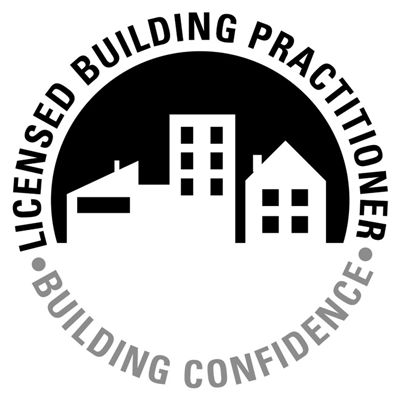When it comes to creating your dream home, you have two main options: building a new home or renovating an existing one. Each option has its own pros and cons, and it’s essential to consider both before making a decision.
Building a new home offers many benefits, including the ability to design your home exactly how you want it, the latest building materials and techniques, and the opportunity to choose a location that meets your specific needs. However, building a new home also comes with its own set of challenges, including the time, money, and effort required to build from scratch.
Renovating an existing home offers many benefits as well, including the ability to work with an existing structure, the potential for lower costs, and the ability to take advantage of the character and charm of an older home. However, renovating also comes with its own set of challenges, including the need to work within the constraints of an existing structure and the potential for hidden costs and unexpected surprises.
Both building a new home and renovating have their pros and cons, and it’s essential to consider both before making a decision. Both options offer unique benefits and challenges, and the choice ultimately depends on your individual needs, preferences, and budget.
The Pros of Building a New Home
Building a new home offers many benefits, including the ability to design your home exactly how you want it. With a new home, you have the opportunity to choose every aspect of the design, from the floor plan and layout to the fixtures, finishes, and appliances. This allows you to create a home that truly meets your needs and reflects your personal style.
Another advantage of building a new home is that you can choose the latest building materials and techniques. Today’s building materials are more energy-efficient, sustainable, and durable than ever, and building with these materials can result in lower utility bills and a longer lifespan for your home.
Additionally, when you build a new home, you have the opportunity to choose a location that meets your specific needs. Whether you want a quiet and peaceful neighborhood or a more urban location with easy access to restaurants and shopping, you can find the perfect spot to build your new home.
Building a new home gives you the opportunity to start fresh, free of any issues that may come with an older home. You can avoid problems like outdated electrical wiring, leaky roofs, and outdated plumbing, and start with a clean slate.
Building a new home offers many benefits, including the ability to design your home exactly how you want it, the latest building materials and techniques, and the opportunity to choose a location that meets your specific needs.
The Cons of Building a New Home
Building a new home can also have some disadvantages. One of the biggest is the cost. Building a new home can be significantly more expensive than renovating an existing home, especially when you factor in the cost of the land and any associated expenses, such as permits and impact fees.
Another disadvantage of building a new home is the time commitment. Building a new home can take several months, or even years, to complete, depending on the size and complexity of the project. This can be a challenge for families who need to move quickly or who don’t have the patience to wait for their new home to be built.
Additionally, building a new home can be a complex and stressful process. You’ll need to work closely with a builder and a team of contractors, engineers, and architects, which can be challenging, especially if you have limited experience in construction and design.
Another potential drawback of building a new home is that you may end up with a home that doesn’t suit your needs as well as you thought it would. For example, you may find that the floor plan doesn’t work for you, or that the fixtures and finishes you chose don’t look as good as you expected.
Building a new home can be more environmentally impactful than renovating an existing home. Building new homes requires the use of resources, such as lumber and other building materials, and can result in the destruction of natural habitats and ecosystems.
Building a new home can be an expensive and time-consuming process, and it can also be complex and stressful. Additionally, there is always the risk that your new home won’t meet your needs and that building a new home may have a negative environmental impact.
The Pros of Renovating
Renovating an existing home has many advantages over building a new home. One of the biggest advantages is cost. Renovating an existing home is typically less expensive than building a new home, especially if you focus on updating and improving the areas of the home that need the most attention, such as the kitchen and bathrooms.
Another advantage of renovating an existing home is that you can take your time and do the work in stages. This can be especially helpful if you have a limited budget and need to prioritize certain projects. You can also choose to renovate only the areas of the home that you use the most, rather than starting from scratch with a new home.
Renovating an existing home can also help you to create a space that is tailored to your needs and lifestyle. For example, you may choose to add a new bathroom, a larger kitchen, or a home office. This can help you to maximize your use of space and make your home work better for you.
Another advantage of renovating an existing home is that you can often preserve the character and charm of an older home, while updating it for modern living. This can be especially appealing for homeowners who love older homes and don’t want to lose their character and charm.
Renovating an existing home can also be more environmentally friendly than building a new home. By updating an existing home, you can help to reduce waste and preserve natural resources. Additionally, you may be able to make your home more energy-efficient, which can help to reduce your carbon footprint and lower your energy bills.
Renovating an existing home has many advantages, including lower cost, the ability to work in stages, the ability to create a space tailored to your needs, the ability to preserve the character and charm of an older home, and the potential to be more environmentally friendly.
The Cons of Renovating
Despite its many benefits, renovating an existing home also has its challenges. One of the biggest challenges is the unpredictability of the process. When you renovate an existing home, you never know exactly what you will find until you start the project. For example, you may discover that there are structural problems with the home, or that you need to replace old and outdated electrical or plumbing systems. This can add time and cost to the project and may require you to make unexpected decisions along the way.
Another challenge of renovating an existing home is the disruption to your daily life. During the renovation process, you may need to temporarily relocate or deal with construction noise and dust in your home. This can be especially challenging if you have young children or pets.
Renovating an existing home can also be more complicated than building a new home, as you will need to work within the existing structure and design of the home. This can limit your ability to make certain changes and may require you to find creative solutions to problems.
In addition, renovating an existing home can also be time-consuming, especially if you have a large project in mind. You may need to wait for permits, for materials to be delivered, or for workers to become available. This can be frustrating and may impact your ability to enjoy your home during the renovation process.
Renovating an existing home can also be stressful, as you will need to make many decisions and manage a large project. You will need to find the right contractors, suppliers, and materials, and you will need to manage the budget and timeline of the project. This can be especially challenging if you are new to home renovation or if you have a busy schedule.
Renovating an existing home can be a great option for homeowners, but it also has its challenges. The unpredictability of the process, the disruption to your daily life, the complexity of the process, the time required, and the stress of managing a large project are all potential drawbacks to consider when deciding whether to renovate or build a new home.




